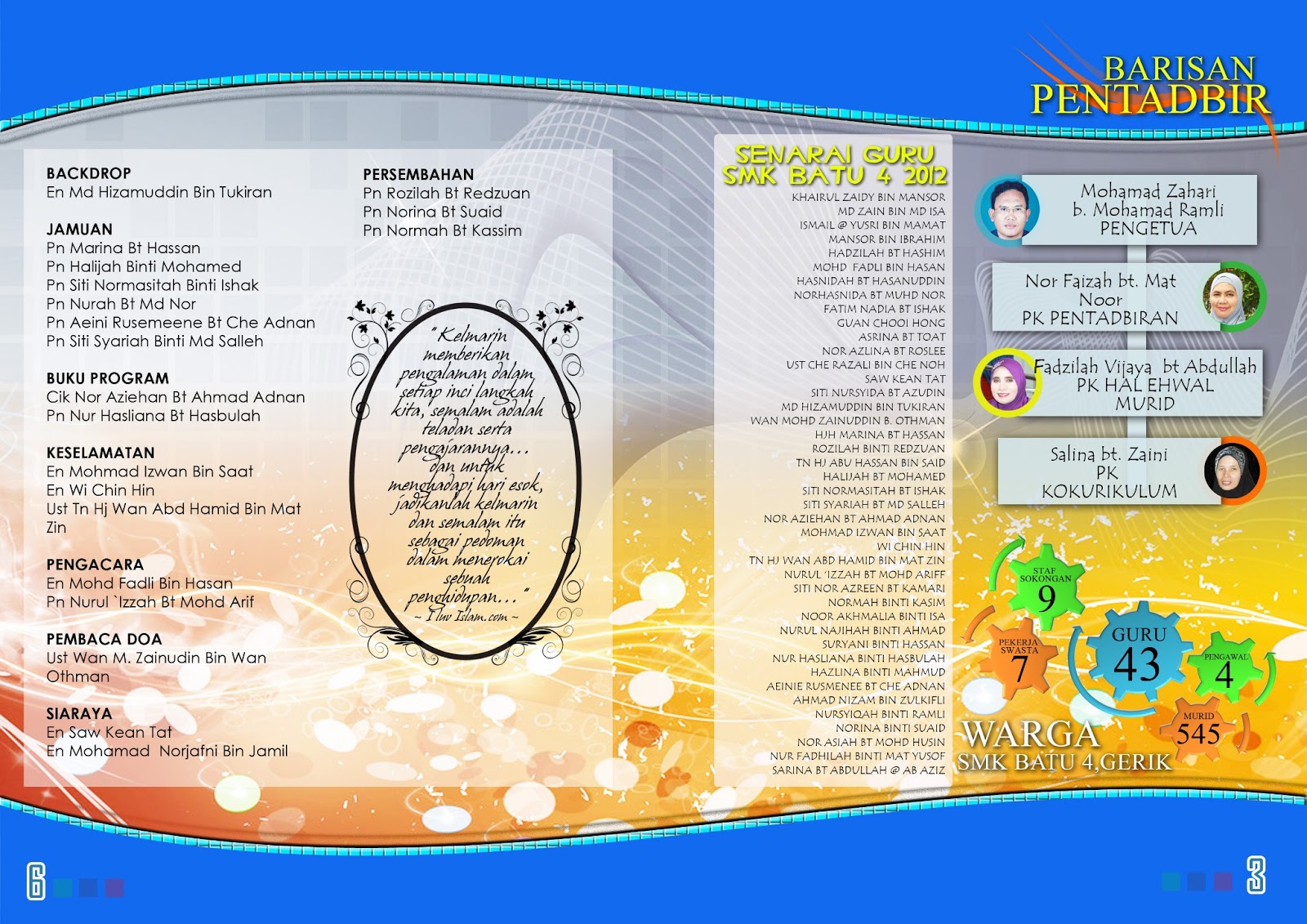

Data are lacking with regard to the effect of dietary lutein supplementation on breast milk lutein concentration during lactation and subsequent plasma lutein concentration in breast-fed infants. Lutein is a carotenoid that varies in breast milk depending on maternal intake.

Lutein Supplementation Increases Breast Milk and Plasma Lutein Concentrations in Lactating Women and Infant Plasma Concentrations but Does Not Affect Other Carotenoids 1 2 3 These findings should be useful for future clinical trials exploring the effectiveness of lutein supplementation in the prevention of or protection against age-related macular degeneration and/or cataracts.

#CONTOH BUKU ATURCARA PROGRAM MOTIVASI FREE#
These results suggest that the relative serum lutein response will be significantly greater from supplements containing free lutein than from supplements containing lutein esters. Regression models were used and determined that (1) baseline serum lutein levels and ( 2) the form of lutein ingested (fL > Le) influence the serum lutein response during supplementation, while subject age, gender, BMI, and serum lipids do not affect serum response. Serum lutein Area Under the Curve response was 17% greater for fL vs. Absolute changes in serum lutein, per mg daily dose, were significantly greater in fL vs. Supplements were consumed with standard portions of dry, ready-to-eat cereal and 2% cow's milk. Fasting blood was obtained at baseline and after 7, 14, 21, and 28 days of supplementation. Lutein transfer to gastric-like lipid droplets and to mixed micelles was higher when lutein was added in spinach than when it was added as pure lutein (+614% and +147%, respectively, p 20 and lutein lutein or 27 mg of lutein ester (equivalent to 13.5 mg free lutein), respectively. Finally postprandial plasma lutein responses were compared in minipigs after the two test meals. The obtained mixed micelles were delivered to Caco- 2 cells to evaluate lutein uptake. Lutein transfer to gastric-like lipid droplets or artificial mixed micelles was assessed when lutein was added to test meals either as a pure molecule ((all- E)-lutein) or in canned spinach ((Z) + (all- E)-lutein).

This study thus aims to decipher the digestion-absorption process of lutein in the presence or not of a food matrix. Margier, Marielle Buffière, Caroline Goupy, Pascale Remond, Didier Halimi, Charlotte Caris-Veyrat, Catherine Borel, Patrick Reboul, Emmanuelleįood matrix is generally believed to alter carotenoid bioavailability, but its effect on xanthophylls is usually limited. Opposite Effects of the Spinach Food Matrix on Lutein Bioaccessibility and Intestinal Uptake Lead to Unchanged Bioavailability Compared to Pure Lutein. This finding may have implications for dietary recommendations that may decrease the risk of certain diseases, e.g., ARMD. The lutein bioavailability from lutein, lutein ester supplements, and spinach did not differ. In conclusion, the lutein bioavailability from egg is higher than that from other sources such as lutein, lutein ester supplements, and spinach. There was no significant difference in TRL response. Results from repeated-measures 1-way ANOVA showed that the baseline and dose-adjusted lutein response in serum was significantly higher after egg consumption than after lutein, lutein ester, and spinach consumption on d 10. Subjects completed all 4 treatments of the study in random order. Triacylglycerol-rich lipoproteins (TRL) were separated from postprandial blood samples (0-24 h) after the first lutein dose and analyzed for lutein concentration. Serum samples were collected from fasting subjects on d -14, 1 (baseline), 2, 3, and 10 and analyzed for changes in lutein concentration. All lutein doses provided 6 mg lutein except for the lutein ester dose, which provided 5.5 mg lutein equivalents. After a 2-wk washout period during which they consumed a low-carotenoid diet, the men were administered 1 of 4 lutein doses ( lutein supplement, lutein ester supplement, spinach, and lutein-enriched egg) for 9 d. Healthy men (n = 10) participated in an intervention study with a crossover design. At present, data regarding bioavailability of lutein from various sources are insufficient. Lutein may be protective against diseases such as age-related macular degeneration (ARMD). Lutein bioavailability is higher from lutein-enriched eggs than from supplements and spinach in men.Ĭhung, Hae-Yun Rasmussen, Helen M Johnson, Elizabeth J


 0 kommentar(er)
0 kommentar(er)
